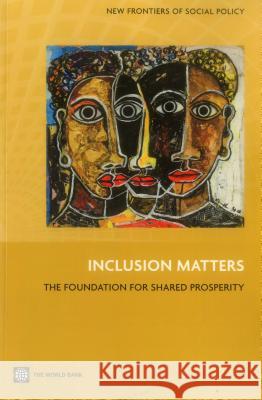Inclusion Matters: The Foundation for Shared Prosperity » książka
Inclusion Matters: The Foundation for Shared Prosperity
ISBN-13: 9781464800108 / Angielski / Miękka / 2013 / 298 str.
This report tries to put boundaries around the abstraction that is "social inclusion." It is intended for policy makers, academics, activists and development partners - indeed anyone who is curious about how to address inclusion in a world that is witness to intense demographic, spatial, economic and technological transitions. Placing the discussion of social inclusion within such global transitions and transformations, it argues that social inclusion is an evolving agenda. While it does not purport to provide definitive answers as to how to achieve social inclusion in any given context, the report offers an easy-to-use definition and a framework to assist practitioners in asking, outlining and developing some of the right questions that can help advance the agenda of inclusion in different contexts. There are seven main messages in this report: 1. Excluded groups exist in all countries. 2. Excluded groups are consistently denied opportunities. 3. Intense global transitions are leading to social transformations that create new opportunities for inclusion as well as exacerbating existing forms of exclusion. 4. People take part in society through markets, services, and spaces. 5. Social and economic transformations affect the attitudes and perceptions of people. As people act on the basis of how they feel, it is important to pay attention to their attitudes and perceptions. 6. Exclusion is not immutable. Abundant evidence demonstrates that social inclusion can be planned and achieved. 7. Moving ahead will require a broader and deeper knowledge of exclusion and its impacts as well as taking concerted action.











